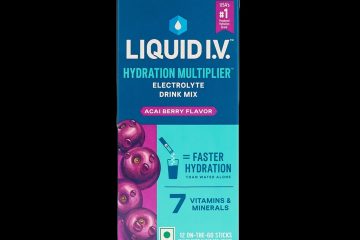The Truth About Splenda and How It Affects Your Health

The production of Splenda begins with sucrose, popularly known as table sugar. Sucralose is created by changing the chemical structure of sucrose to create a new substance that the human body cannot absorb. As a result, an artificial sweetener that is both highly sweet (600 times sweeter than ordinary sugar) and low in calories have been developed. Splenda includes 3.36 calories per packet.
Many people use artificial sweeteners to minimize calories and lose weight by removing sugar from their diets. Some of these sugar replacements, on the other hand, have been a source of contention for decades. Splenda, one of the sweeteners, has even been linked to cancer, despite the lack of evidence. Here’s what scientists have discovered about the health impacts of Splenda thus far.
Blood Sugar Impact
In a study, eating sucralose and carbohydrates together for ten days reduced insulin sensitivity in otherwise healthy adults. To put it another way, too much sucralose-based sweetener could raise your blood sugar, increasing your chance of prediabetes. However, because this study is new, no more investigations have been done to back up its findings. Check out https://inshape.blog/keto/is-splenda-keto/ now.
Irritate the Gastrointestinal Tract
Artificial sweeteners are thought to be harmful to gut health. However, the only research on this impact yet has been conducted on animals, and there is no evidence that the findings extend to human health. Artificial sweeteners such as mannitol and sorbitol, on the other hand, have been linked to gastrointestinal problems such as diarrhea. However, it’s unclear whether this will have any long-term consequences for gut health.
Not Causes Cancer
However, the research was done on mice, and the researchers fed the rodents at least 12 times the amount of sucralose suggested for human consumption. The mice consumed this amount of food every day until they died. Even at exposure levels many orders of magnitude higher than the range of expected daily consumption levels, sucralose shows no carcinogenic effect.
Can Increase Sugar Cravings
Artificial sweeteners, in general, can be detrimental to those trying to reduce weight. Artificial sweeteners, according to a study, influence the brain differently than natural sugar, leaving it feeling less fulfilled, which can lead to increased sweet cravings. When we eat sugar, our brain’s reward circuits are active, and hormones that make us feel good are released, which explains why we crave sweets so much. Artificial sweeteners only partially activate the same pathways because they don’t contain calories and thus can’t be converted down into energy for the body.
There are research that looks into the long-term health consequences of Splenda usage. According to a study, Splenda isn’t always bad for you, but it’s also not definitely good for you. It also doesn’t have any nutritional value.












